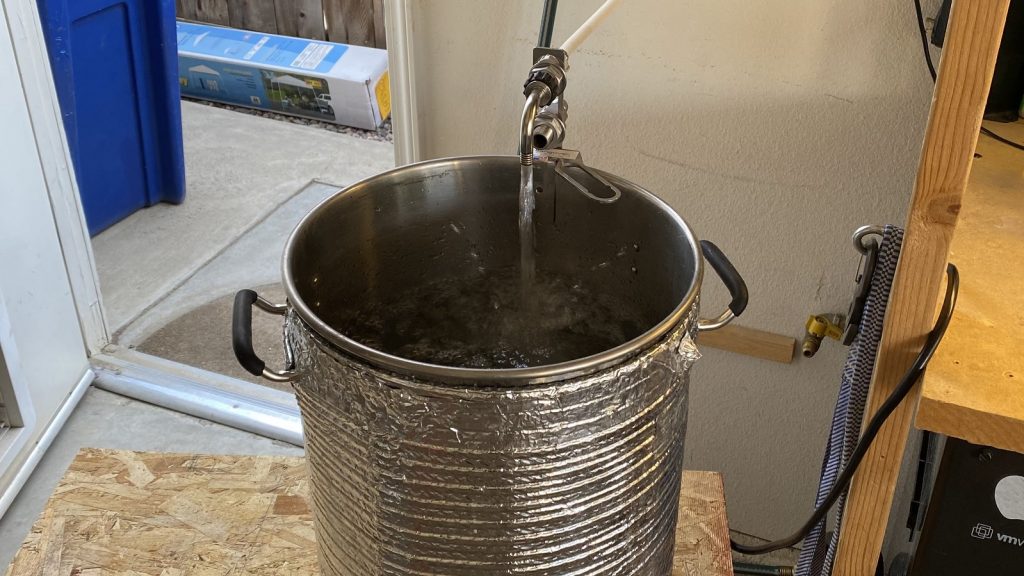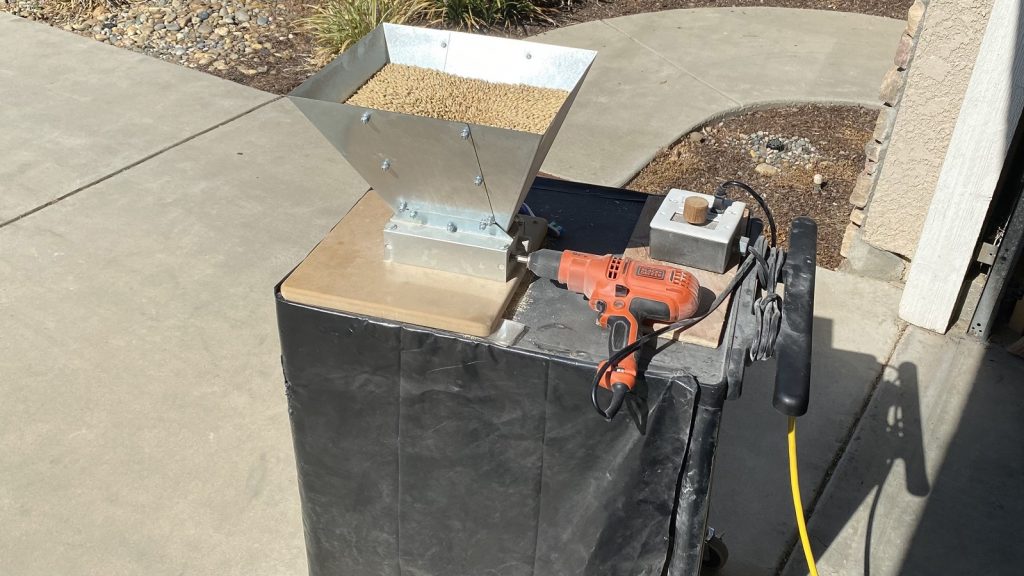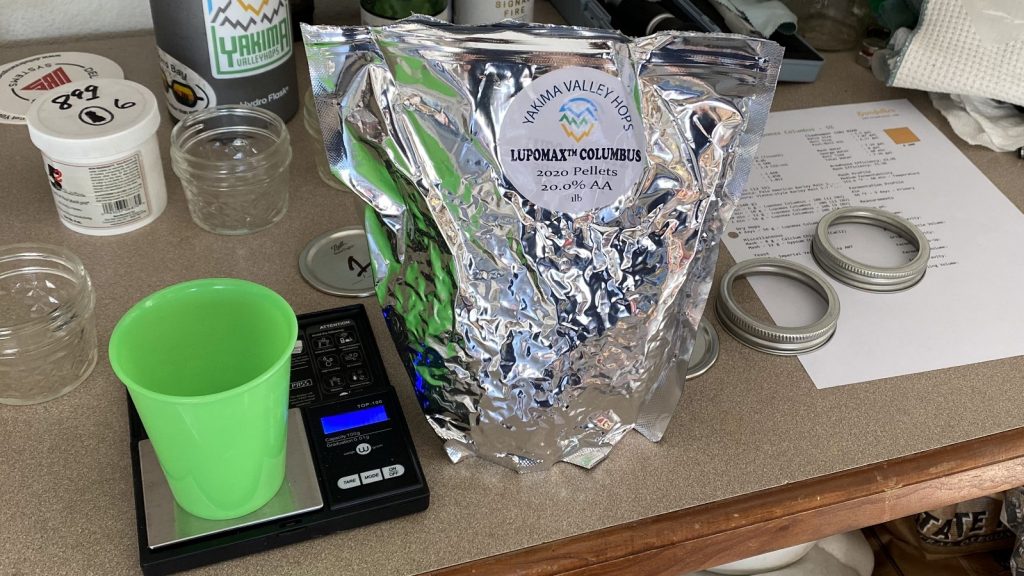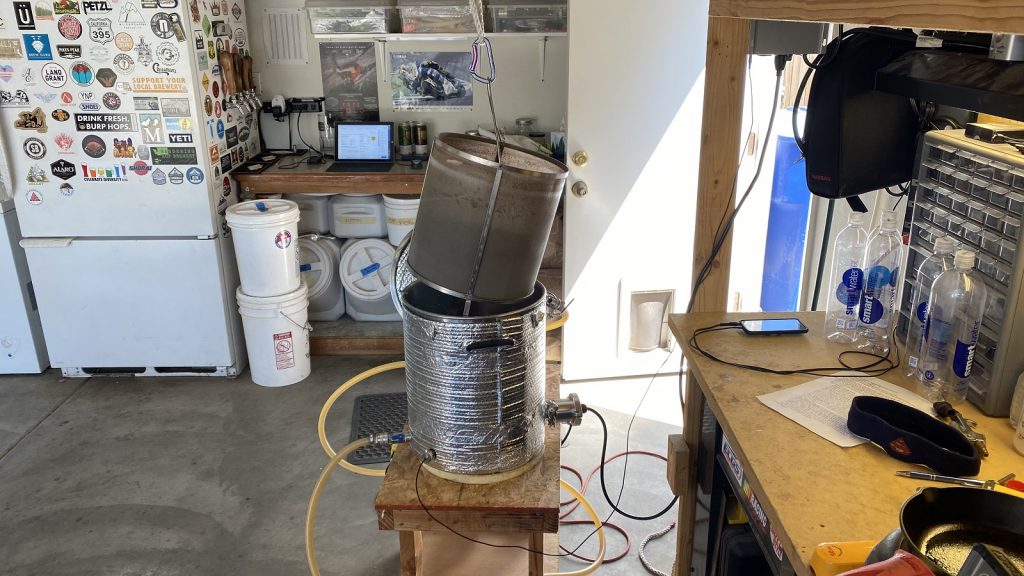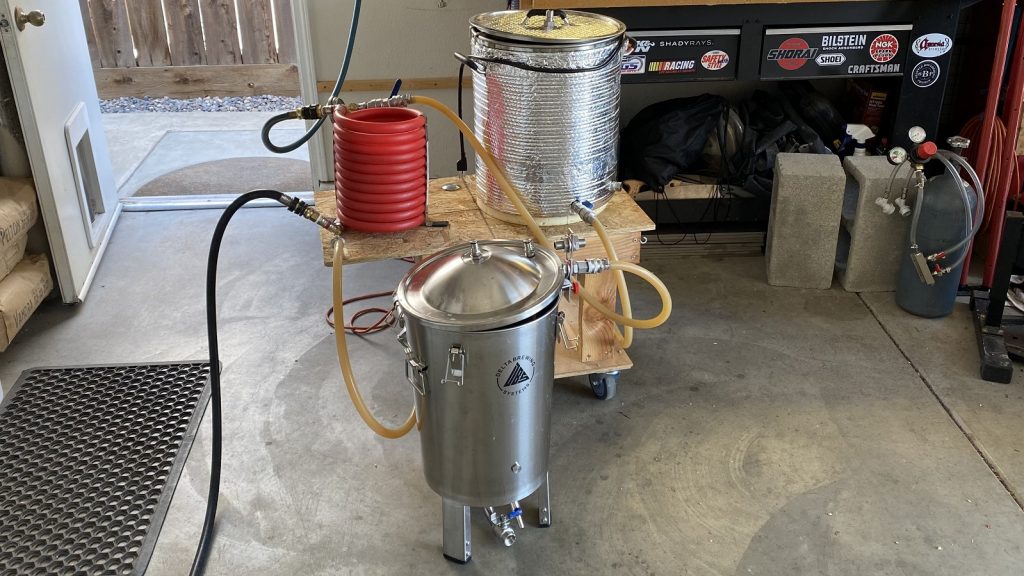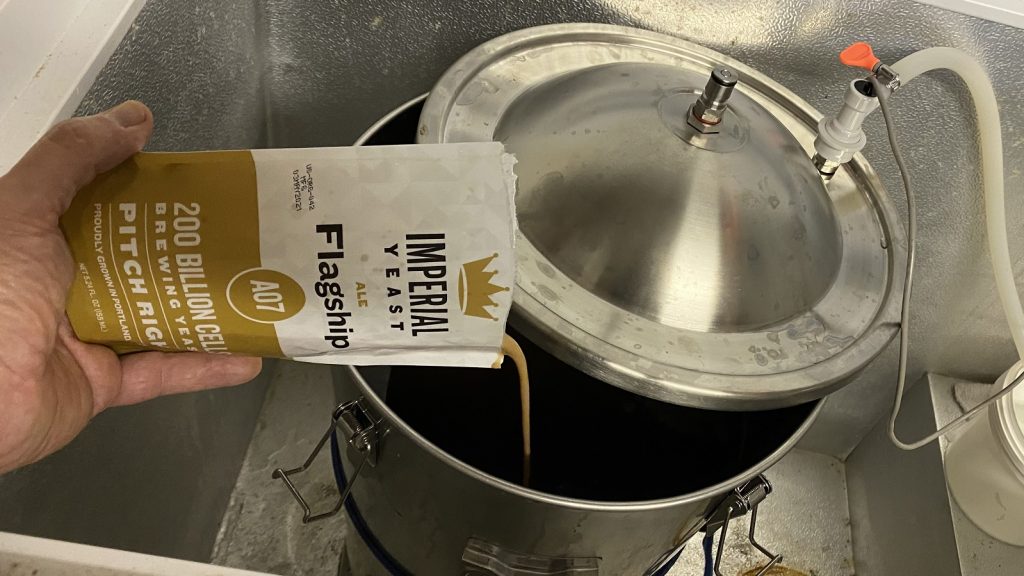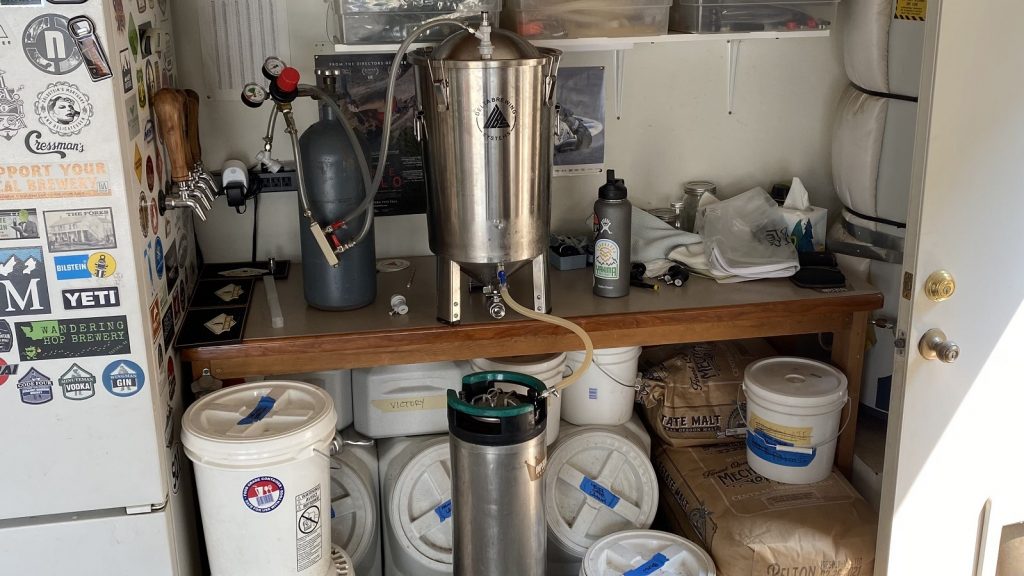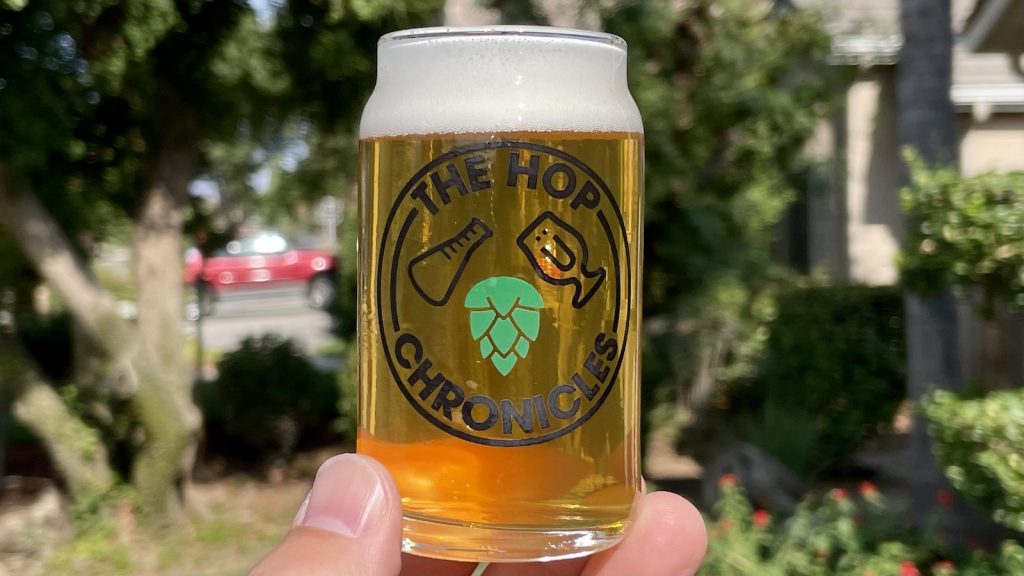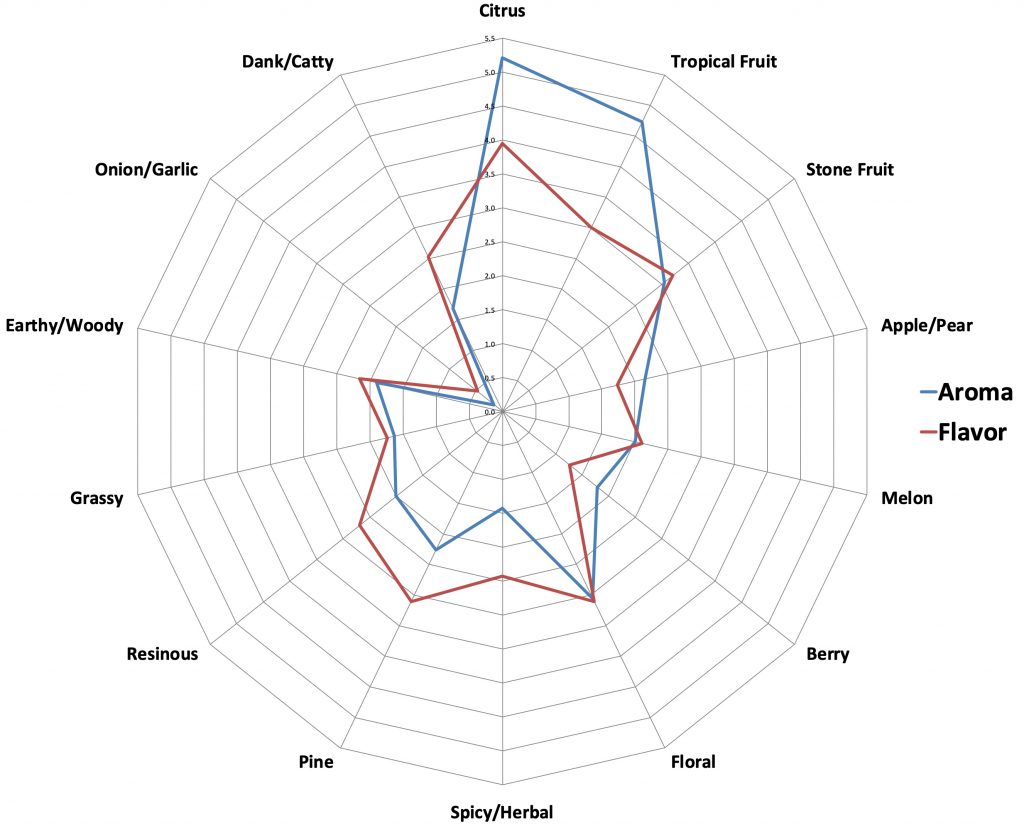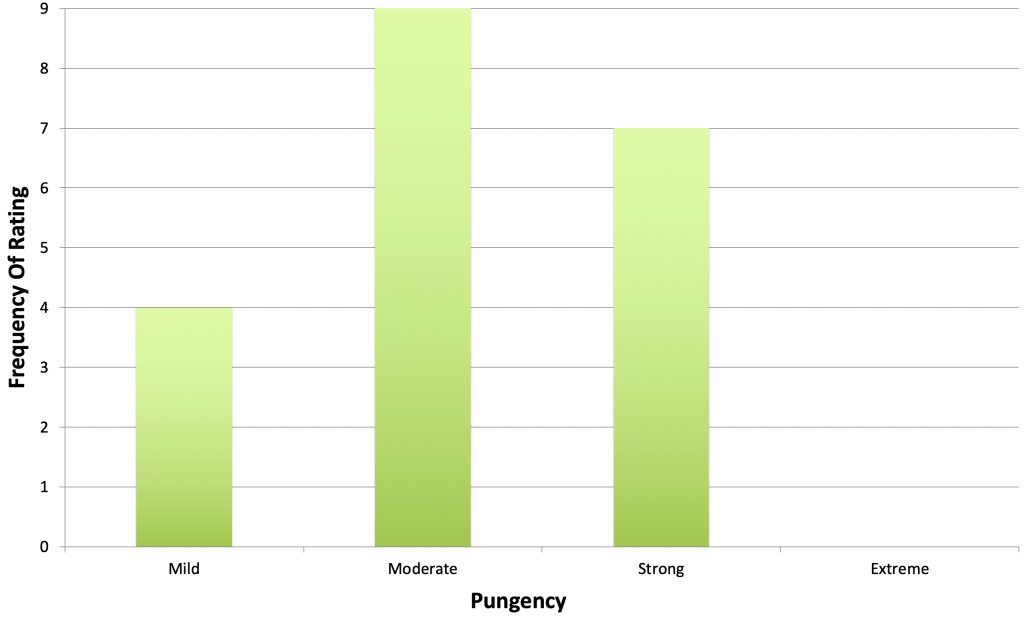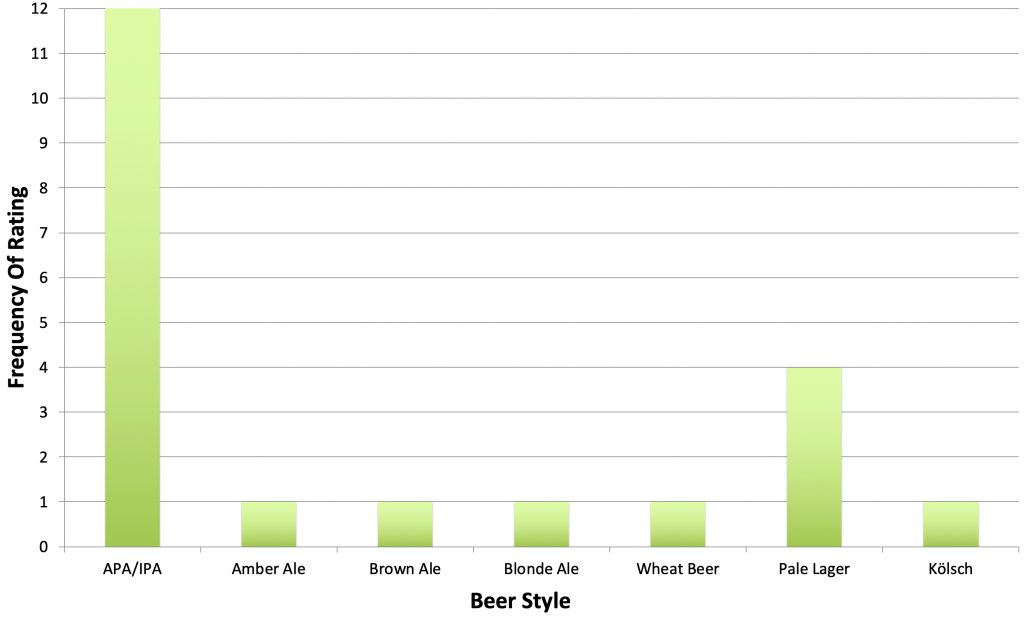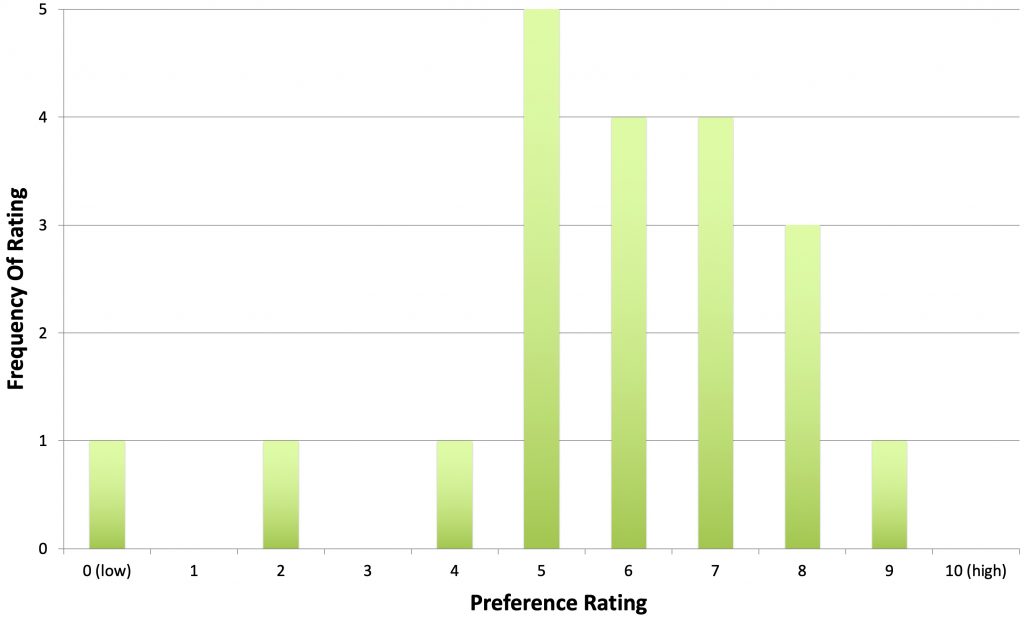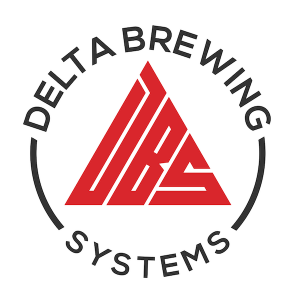Author: Paul Amico
Soon after its release in the 1990’s, a couple other hop producers began growing Columbus, renaming it Tomahawk and Zeus, hence it’s commonly referred to as CTZ. In addition to its solid bittering potential, Columbus is known to impart beer with a pleasant blend of citrus, earthy, and spicy characteristics, and given its popularity during the rise of modern IPA, it’s viewed by many as a classic these days.
Alpha: 20%
Beta: 4.5 – 6%
Cohumulone: 28 – 32% of alpha acids
Total Oil: 2.5 – 3.5 mL / 100g
Myrcene: 50 – 60%
Humulene: 12 – 18%
Caryophyllene: 9 – 11%
Farnesene: < 1%
Linalool: 0.4 – 0.6%
Geraniol: 0.2 – 0.5%
ß-Pinene: 0.6 – 1%
Parentage: Daughter of Nugget
I’ve been using Columbus since I started brewing, usually blending it with other common “C-hops” when making classic examples of American IPA. When Haas released a LUPOMAX of this tasty variety, I was excited to use it in a single-hop Pale Ale and serve it to tasters to see what they think!
| MAKING THE BEER |
I went with our standard Hop Chronicles Pale Ale recipe for this batch, making small adjustments to the kettle hop additions to ensure balanced bitterness.
Columbus LUPOMAX Pale Ale
Recipe Details
| Batch Size | Boil Time | IBU | SRM | Est. OG | Est. FG | ABV |
|---|---|---|---|---|---|---|
| 5.5 gal | 60 min | 45 | 5.7 SRM | 1.053 | 1.008 | 5.91 % |
| Actuals | 1.053 | 1.008 | 5.91 % | |||
Fermentables
| Name | Amount | % |
|---|---|---|
| Lamonta: Pale American Barley Malt | 10 lbs | 83.33 |
| Vanora: Vienna-style Barley Malt | 2 lbs | 16.67 |
Hops
| Name | Amount | Time | Use | Form | Alpha % |
|---|---|---|---|---|---|
| Columbus LUPOMAX | 6 g | 45 min | Boil | Pellet | 20 |
| Columbus LUPOMAX | 10 g | 20 min | Boil | Pellet | 20 |
| Columbus LUPOMAX | 12 g | 10 min | Boil | Pellet | 20 |
| Columbus LUPOMAX | 56 g | 2 min | Boil | Pellet | 20 |
| Columbus LUPOMAX | 56 g | 4 days | Dry Hop | Pellet | 14 |
Yeast
| Name | Lab | Attenuation | Temperature |
|---|---|---|---|
| Flagship (A07) | Imperial Yeast | 77% | 32°F - 32°F |
Notes
| Water Profile: Ca 92 | Mg 1 | Na 10 | SO4 153 | Cl 50 |
Download
| Download this recipe's BeerXML file |
I started off my brew day by collecting the full volume of filtered water, which I adjusted to my desired mineral profile.
After flipping the switch on my controller to heat up the water, I weighed out and milled the grain.
When the water was properly heated, I incorporated the grains and set the controller to maintain my desired mash temperature of 152°F/67°C before preparing the kettle hop additions.
Once the 60 minute mash rest was complete, I removed the grain basket and let it drip while the wort was heating up.
The wort was boiled for 60 minutes with hops added at the times stated in the recipe, after which I used my CFC to chill the wort during transfer to a sanitized fermenter.
A refractometer reading showed the wort was at my target OG.

Next, I direct pitched a single pouch of Imperial Yeast A07 Flagship into the wort.
The beer was left to ferment at 66°F/19°C for a week before I took a hydrometer measurement confirming FG was reached.
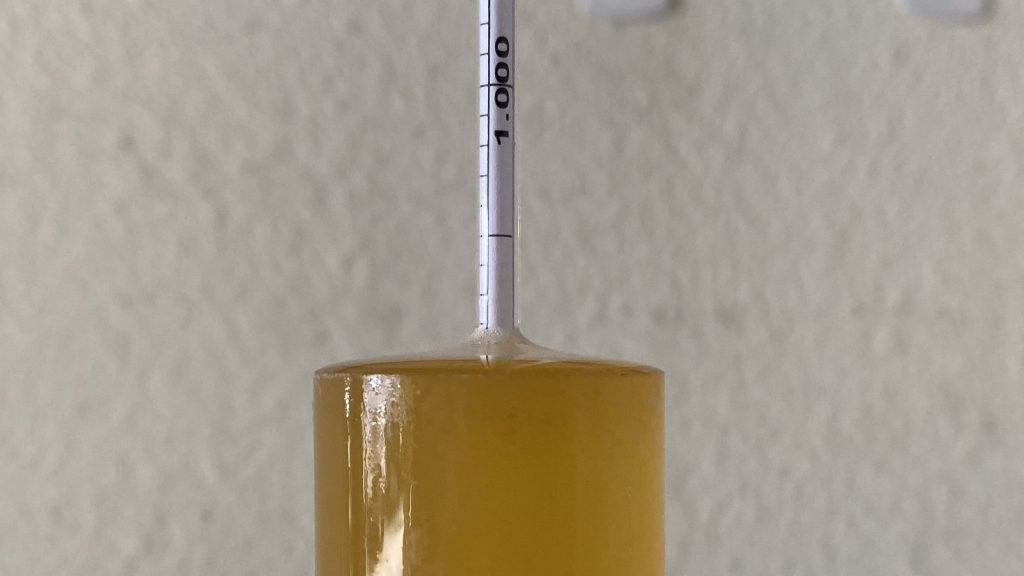
With fermentation complete, I pressure-transferred the beer to a CO2 purged keg.
The filled keg was placed in my kegerator and burst carbonated overnight before I reduced the gas to serving pressure. After a week of conditioning, I began serving it to blind tasters.
| METHOD |
Participants were instructed to focus only on the aromatic qualities of the beer before evaluating the flavor. For each aroma and flavor descriptor, tasters were asked to write-in the perceived strength of that particular characteristic on a 0-9 scale where a rating of 0 meant they did not perceive the character at all and a 9 rating meant the character was extremely strong. Once the data was collected, the average rating of each aroma and flavor descriptor was compiled and analyzed.
| RESULTS |
A total of 20 people participated in the evaluation of this beer, all blind to the hop variety used until after they completed the survey. The average aroma and flavor ratings for each descriptor were plotted on a radar graph.
Average Ratings of Aroma and Flavor Perceptions
The 3 characteristics endorsed as being most prominent by participants:
| Aroma | Flavor |
| Citrus | Citrus |
| Tropical Fruit | Stone Fruit |
| Stone Fruit + Floral (tie) | Floral + Pine (tie) |
The 3 characteristics endorsed as being least prominent by participants:
| Aroma | Flavor |
| Onion/Garlic | Onion/Garlic |
| Spicy/Herbal | Berry |
| Grassy | Apple/Pear + Grassy (tie) |
When asked to rate the pungency/strength of the hop, most tasters perceived it as being mildly to moderately pungent.
Tasters were then instructed to identify beer styles they thought the hop would work well in.
Finally, participants were asked to rate how much they enjoyed the hop character on a 1 to 10 scale.
My Impressions: After taking an initial whiff of the first pint I poured for myself, I felt as if I was transported back to a time! In both the aroma and flavor, I perceived a nostalgic blend of orangey citrus and sappy pine with a supportive spice and earthy notes in the background. I absolutely loved this beer!
| CONCLUSION |
Possessing both high alpha acid and a desirable oil profile, Columbus earned itself a spot on the list of classic American hops and was used quite heavily during the rapid rise in popularity of American IPA. While this classic hop has received a bit less publicity lately, Haas’ LUPOMAX version promises to deliver a potent reminder of just how good this hop can be.
The most prominent aroma and flavor characteristics noted by people who evaluated a Pale Ale made solely with Columbus LUPOMAX were citrus and tropical fruit, with others noting distinct pine and floral notes. In chats with a few of the older participants who’d completed the survey, they agreed this hop wasn’t as “juicy” as many modern varieties and had a “sharper” note to it that reminded them of beers from over a decade ago, which may explain the lower preference ratings of some tasters.
As someone who got into brewing nearly 2 decades ago, I was pleasantly surprised with how this single-hop Columbus LUPOMAX beer turned out. I’ve always appreciated what Columbus contributes to beer, but I had clue it could be so good on its own, which I suspect may also be due to the fact this was a LUPOMAX hop. Drinking this beer was very enjoyable and inspired me to go back to brew up a classic, clear, C-hop IPA in the near future!
Columbus LUPOMAX hops are available now at Yakima Valley Hops, get some while you can! If you have any thoughts on this variety, please feel free to share them in the comments section below.
Support Brülosophy In Style!
All designs are available in various colors and sizes on Amazon!
Follow Brülosophy on:
FACEBOOK | TWITTER | INSTAGRAM
If you enjoy this stuff and feel compelled to support Brulosophy.com, please check out the Support page for details on how you can very easily do so. Thanks!



